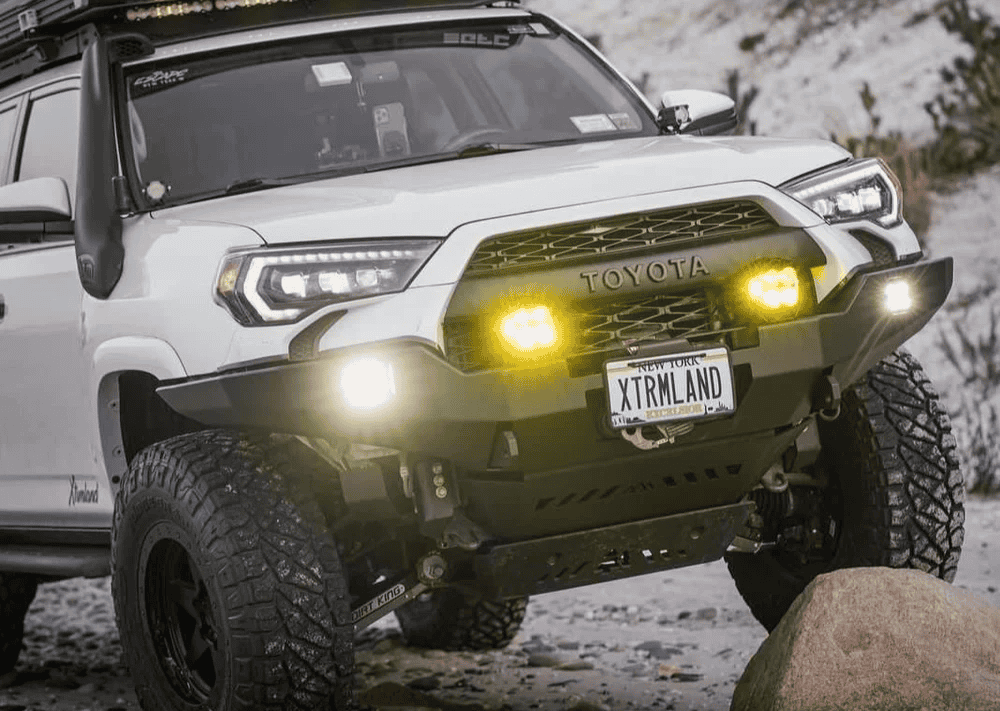Overland Vehicles

A diy overlanding trailer begins with a clear mission. Decide where you will travel, how many nights you will camp, and what terrain you expect. Those answers guide frame size, axle rating, tire choice, and ground clearance. Keep the loaded weight realistic. For most compact builds, aim for a finished weight that leaves healthy payload on the axle and reserves power for hills and rough tracks.
Get the geometry right before you cut steel. Target a tongue weight in the ten to fifteen percent range of total loaded weight for stability. Match the trailer track width to your tow vehicle when possible, which helps it follow ruts and reduces scrub. A longer tongue improves backing and clearance for tailgates or rear doors. If you plan serious trails, consider an articulating coupler for better approach angles and less binding.
Your frame is the backbone. Many home builders choose steel for ease of welding and cost, then protect it with primer, paint, and a tough topcoat. Aluminum can reduce weight but demands different skills and joints. For a diy small camper trailer body, marine plywood with epoxy, composite panels, or thin steel skins fastened to a skeleton can all work. Seal every seam. Water will find any gap.
Suspension choices shape your ride. Leaf springs are simple and proven. Torsion axles ride smoothly and save space. Independent setups add articulation but cost more. Select an axle with brakes once your anticipated weight approaches legal limits in your state. Use quality hubs, bearings, and wheels. Fit all terrain tires that match your tow vehicle diameter to keep spares simple and ground clearance consistent.
Lighting and legality matter. Install DOT compliant tail, brake, turn, and marker lights. Add a breakaway switch if brakes are fitted. Confirm the VIN process and registration requirements before you start. Safety chains, a proper jack, and recovery points are not optional.
A diy overlanding trailer lives or dies by its systems. For power, a compact solar array of 100 to 300 watts feeding a lithium battery and a quality charge controller covers lights, a fridge, and device charging. Size wiring for voltage drop, use proper fusing, and keep electronics in a ventilated, dry bay. For water, a twenty to forty liter tank with a strainer, a small pump, and a basic filter offers a reliable baseline. Add quick connects for filling and a simple drain for winterization.
Ventilation and weatherproofing ensure comfort. Roof vents with insect screens, sliding windows, and gasketed doors control condensation. Use sound deadening and insulation in walls and floors, then add a hardwearing surface like vinyl plank or marine mat. If you want rapid setup, a diy tent trailer with a rooftop tent or fold out canvas room keeps weight low and sleeping off the ground. Canvas needs care; store it dry and treat it seasonally.
Think in zones: sleep, cook, store, and wrench. For diy small camper floor plans, a transverse bed saves length, while a longitudinal bed eases access. A rear galley offers fast roadside stops. Use drawers for cookware and soft bins for bulky gear. Leave a clear aisle for rainy day changes and include a flat surface for repairs.
Many enthusiasts begin with camper diy sketches and realize they want to be out exploring sooner rather than learning fabrication. If you decide to go pro, you can look at complete builds and purpose built overland solutions that match your routes and gear needs. Explore our range of overland rigs for proven platforms that move from plan to trail quickly.
Some projects only need targeted upgrades. A professionally engineered suspension package, a clean electrical system, or a rugged galley can transform a homemade camper trailer into a reliable traveler. See how a custom overland upfit can integrate storage, power, water, and lighting without guesswork.
If you want to understand how we build, what materials we trust, and how handoff works, read why choose OZK Customs. Our team builds trail ready rigs in Fayetteville, Arkansas, with an in person orientation at Adventure Point so you hit the road confident and comfortable.
You have done the homework on diy overlanding trailer ideas, weighed options for a diy small camper trailer, and studied diy tent trailer layouts. If you are ready to trade weekends of fabrication for weekends on the trail, we can help. From full overland rigs to focused upgrades that finish your vision, our shop delivers dependable craftsmanship and a smooth pickup experience. Visit our overland rigs page, explore a custom overland upfit, and learn more about why choose OZK Customs. We will get you packed, powered, and pointed toward the horizon.
Ready to skip guesswork and roll out in a proven overland build? Talk with OZK Customs about a complete custom rig or a professional upfit that fits your routes and gear. Fly into Northwest Arkansas, get a personal handoff at Adventure Point, and drive home in a dialed setup built for your style.
ADDRESS:
6159 E Huntsville Rd, Fayetteville, AR 72701
PHONE:
(479) 326-9200
EMAIL:
info@ozkvans.com